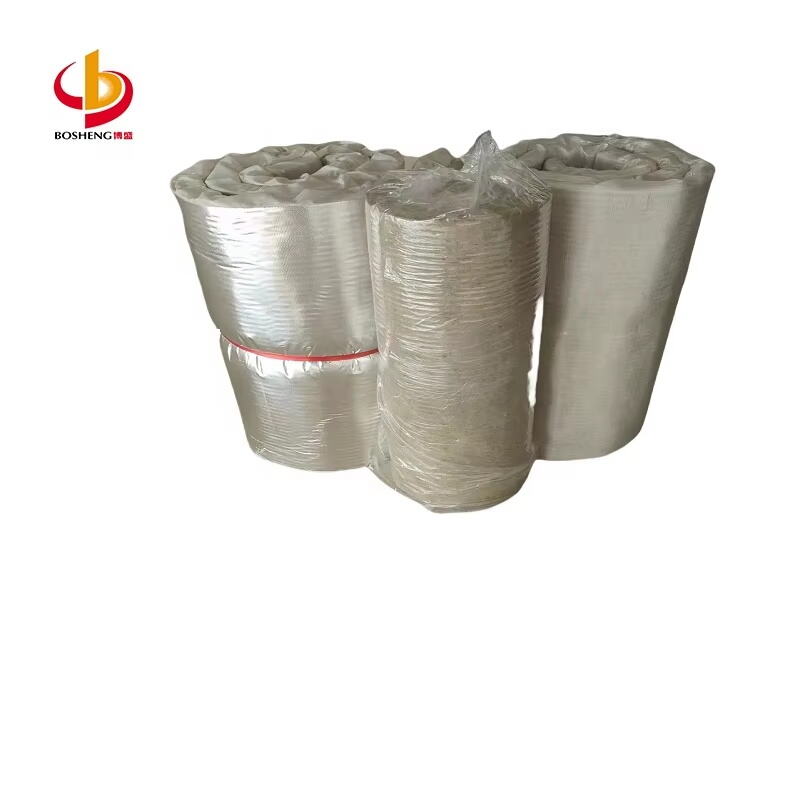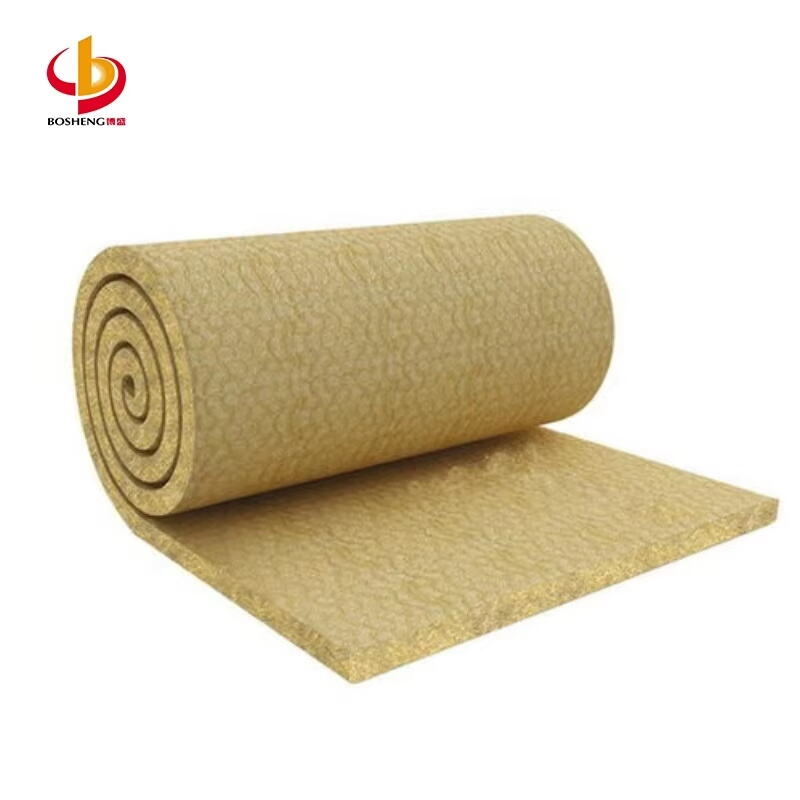Understanding the Superior Benefits of Mineral Fiber Insulation Solutions
In the ever-evolving world of construction and home improvement, finding the right insulation material can make a significant difference in energy efficiency, comfort, and building safety. Rock wool rolls have emerged as a leading choice among contractors, architects, and homeowners alike, offering an impressive combination of thermal performance, fire resistance, and sustainable characteristics. This comprehensive guide explores why this remarkable insulation material deserves your attention and how it can transform your building's performance.
As energy costs continue to rise and environmental concerns take center stage, the selection of proper insulation becomes increasingly crucial. Rock wool rolls, also known as mineral wool or stone wool insulation, are manufactured from natural stone and recycled materials, making them an environmentally conscious choice that doesn't compromise on performance.
The Science Behind Rock Wool Insulation Technology
Manufacturing Process and Material Composition
Rock wool rolls are created through an innovative process that mimics volcanic activity. Natural rock is heated to extremely high temperatures – approximately 1,600°C – until it melts. The molten rock is then spun into fine fibers, similar to the way cotton candy is made, but at an industrial scale. These fibers are compressed and formed into rolls with varying densities and thicknesses to suit different applications.
The resulting material contains millions of tiny air pockets between the fibers, creating an extremely effective barrier against heat transfer. This unique structure is what gives rock wool rolls their exceptional insulating properties, while also contributing to their sound absorption capabilities.
Thermal Performance Characteristics
The thermal resistance of rock wool rolls is one of their most impressive features. With R-values typically ranging from R-3.3 to R-4.2 per inch of thickness, these insulation materials provide excellent temperature control year-round. The non-directional fiber structure helps maintain consistent performance regardless of temperature variations, ensuring your space stays comfortable in both winter and summer.
Unlike some other insulation materials, rock wool rolls maintain their thermal performance over time, refusing to settle or deteriorate under normal conditions. This long-term stability translates to sustained energy savings and consistent indoor comfort throughout the material's lifetime.

Fire Safety and Sound Control Advantages
Superior Fire Resistance Properties
One of the most compelling reasons to choose rock wool rolls is their outstanding fire resistance. Made primarily from stone, these materials can withstand temperatures up to 1,000°C without melting. This remarkable fire resistance not only helps protect building occupants but can also provide crucial extra minutes for evacuation in the event of a fire.
Rock wool rolls are classified as non-combustible and don't contribute to fire spread or smoke development. This makes them particularly valuable in commercial buildings and residential structures where fire safety is a top priority.
Acoustic Performance Benefits
The dense, fibrous structure of rock wool rolls makes them excellent sound absorbers. They can significantly reduce sound transmission between rooms and from external sources, making them ideal for both residential and commercial applications where noise control is important.
When installed in walls and between floors, rock wool rolls can help create peaceful environments by minimizing the transfer of airborne sounds like voices, music, and traffic noise. The material's ability to dampen sound vibrations also helps reduce impact noise transmission through floors and walls.
Installation and Long-term Performance
Professional Installation Guidelines
While rock wool rolls are relatively straightforward to install, proper installation is crucial for optimal performance. The material's slight rigidity makes it easier to handle and fit between standard wall studs and ceiling joists compared to other insulation types. Installers appreciate how the rolls can be cut cleanly with a serrated knife and maintain their shape without slumping or settling.
Professional installation ensures proper compression and fitting around obstacles like electrical boxes and plumbing, maximizing the insulation's effectiveness. The material's dimensional stability means it won't shrink or expand after installation, maintaining consistent performance over time.
Durability and Maintenance Considerations
Rock wool rolls are renowned for their durability and resistance to deterioration. They're naturally water-repellent while remaining vapor-permeable, allowing any trapped moisture to escape and preventing mold growth. This characteristic is particularly valuable in climates with high humidity or in areas prone to condensation.
The material's inorganic composition makes it unattractive to pests and resistant to rot, ensuring long-term performance without degradation. Unlike some synthetic insulation materials, rock wool rolls maintain their shape and thermal properties throughout their lifetime, typically lasting as long as the building itself.
Environmental Impact and Sustainability
Eco-friendly Manufacturing Process
The production of rock wool rolls aligns with modern sustainability goals. The manufacturing process incorporates a significant percentage of recycled materials, and the natural stone used is an abundant resource. Advanced production facilities have implemented closed-loop systems that minimize waste and reduce environmental impact.
The energy used in manufacturing is offset by the significant energy savings achieved throughout the product's lifetime. Studies show that rock wool insulation typically saves more than 100 times the energy used in its production within the first year of installation.
End-of-Life Considerations
When it comes to disposal or replacement, rock wool rolls present another environmental advantage. The material is fully recyclable and can be reprocessed into new insulation products. This circularity helps reduce construction waste and supports sustainable building practices.
Many manufacturers offer take-back programs for used rock wool insulation, ensuring proper recycling and minimizing landfill impact. This commitment to sustainability extends throughout the product's entire lifecycle.
Frequently Asked Questions
How long can I expect rock wool roll insulation to last?
Rock wool roll insulation typically lasts for the lifetime of the building when properly installed. Unlike some other insulation materials, it doesn't deteriorate, settle, or lose its insulating properties over time, making it a long-term investment in your building's efficiency.
Is rock wool insulation safe for residential use?
Yes, rock wool insulation is safe for residential use. While proper protective equipment should be used during installation, once installed, it's completely safe for occupants. The material is inert and doesn't off-gas or release harmful substances into the living space.
Can rock wool rolls be installed in existing walls?
While rock wool rolls are most commonly used in new construction or during major renovations, they can be installed in existing walls. However, this typically requires removing either the interior drywall or exterior siding to access the wall cavity. Professional installation is recommended for retrofit applications to ensure proper fit and performance.
How does the cost of rock wool rolls compare to other insulation options?
While the initial cost of rock wool rolls may be slightly higher than some alternatives, their superior durability, fire resistance, and long-term performance often make them more cost-effective over the building's lifetime. When considering factors like energy savings, sound control, and fire safety benefits, rock wool rolls typically offer excellent value for the investment.




